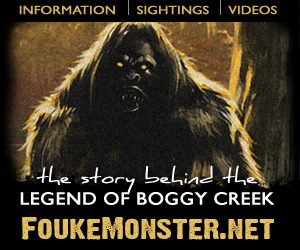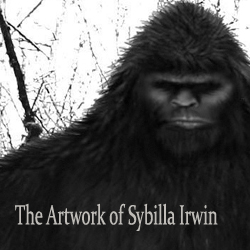Wow! 100 New Species Found Off Hawaii
Posted by: Loren Coleman on November 1st, 2006
Everett, Washington’s Herald today publishes a summary ("Researchers find 100 new species off Hawaii") on the discovery of 100 new species found recently in the remote French Frigate Shoals in the Northwestern Hawaiian Islands:
"There were lots of organisms that people were saying, ‘Wow! What’s that?’" said Joel Martin, a zoologist for the Natural History Museum of Los Angeles County.
Researchers returned from the voyage Sunday with at least 1,000 species of invertebrates, including worms, crabs and sea stars. About 160 unique species of seaweed were also found. Among the discoveries are multicolored worms; a bright purple, foot-long sea star; and a hermit crab that dons a sea anemone and sports shiny golden claws.
Certainly not cryptozoological, per se, but interesting to know some of the details of the frequent thrown-away comment – "Yeah, lots of new species are discovered every week."
In a similar vein, on Wednesday evening, November 1, 2006 (check your local listings), on PBS Channels, a program called "Wild Chronicles" has a second-season premiere that visits the Cheyenne Mountain Zoo in Colorado, as well as discussing the Hawaiian monk seal, and the search for new species in Guyana’s jungles.
About Loren Coleman
Loren Coleman is one of the world’s leading cryptozoologists, some say “the” leading living cryptozoologist. Certainly, he is acknowledged as the current living American researcher and writer who has most popularized cryptozoology in the late 20th and early 21st centuries.
Starting his fieldwork and investigations in 1960, after traveling and trekking extensively in pursuit of cryptozoological mysteries, Coleman began writing to share his experiences in 1969. An honorary member of Ivan T. Sanderson’s Society for the Investigation of the Unexplained in the 1970s, Coleman has been bestowed with similar honorary memberships of the North Idaho College Cryptozoology Club in 1983, and in subsequent years, that of the British Columbia Scientific Cryptozoology Club, CryptoSafari International, and other international organizations. He was also a Life Member and Benefactor of the International Society of Cryptozoology (now-defunct).
Loren Coleman’s daily blog, as a member of the Cryptomundo Team, served as an ongoing avenue of communication for the ever-growing body of cryptozoo news from 2005 through 2013. He returned as an infrequent contributor beginning Halloween week of 2015.
Coleman is the founder in 2003, and current director of the International Cryptozoology Museum in Portland, Maine.










Nothing makes me laugh more (OK, it’s not THAT bad, but you know..) than the constant recycling of phrases like:
1. American Serengeti (a new one each time)
2. The last great wild….(complete the phrase)
3. The Last Wilderness
4. The last unknown…(complete)
We’re not even close to “the last” anything yet.
We’re probably not fishing out the oceans, either, just getting what we know how to get. (Which, yeah, in effect might be the same thing. For us, not for the ocean.)
So here’s a “Hidden Hotbed of Biodiversity” in Vacationland, USA. Yep, that must be the last one!
I mean, sheesh. We can’t even “discover” the sasquatch! How bad is THAT?
100 new species? Big fat deal. Countries spend billions exploring space, and almost nothing exploring our own planet. The worlds oceans, woods and mountains have much to reveal if we go looking. I’ve gotten tired of writing to my congressman about it, they just scoff and never answer. What do I care about what’s in space? I want to know what’s in the woods near my home, or the creepy lake I go fishing at. Maybe it’s just me, but as someone with a great interest in cryptozoology, I feel an obligation to look here, on Earth to satisfy mine and sciences curiosity as to whether certain cryptids actually do exist, rather than finding a frickin’ hermit crab with shiny claws.
Well, there you are, Shades. We’re human.
Our curiosity is enormous. But the areas in which we refuse to engage it are so glaringly vast as to make one pull one’s remaining hair.
And leave it inside a big faked footprint. And call everybody on the block to come see.
The area right beneath our own noses is so notorious a blind spot as to, well, have entered the vocabulary. Sad. But oh so human.
For sure only a fraction of all animal species on the planet have been discovered. Whole new ecosystems have been discovered at the bottoms of the oceans, new pockets of biodiversity are being uncovered, it’s very exciting stuff. We still do not know much about this planet we inhabit and I feel there are many wonders waiting out there to be found. This is a big find, but I am not completely suprised by it. I think in the years to come, we will see more of these kinds of discoveries. I only hope we have the will and the rescources to preserve them.
I can’t wait for the day when one the cryptids that were on Mr Coleman’s list (or some of the other good lists that were posted) is brought out into the light. I mean a hermit crab with some bling is cool, but think of the “wow factor” when say a living dino is discovered in Africa for example. That’s what I, in my heart of hearts, is really waiting for.
How long will we have to wait?
LordofShades70, I couldn’t agree with you more, my sentiments exacltly. I said it once, and I’ll say it again: It is my understanding that we know more about outerspace than we do about our own oceans. That’s really sad. However I am glad that these researchers have discovered new species here in our own backyard. I’ve chosen a different career path, but in another life I think I would be a marine biologist/oceanographer, probably fighting for funding.
As a relatively ignorant human being, I don’t see how we can favor one form of scientific research over another. Because of the technological advances of space sciences that has brought huge amounts of data about our lifeboat called Earth and the on going biological surveys being augmented by GPS and satellite tracking systems, it would seem foolish not to keep investing in it. IMHO the statement that we know more about space than the oceans of the earth is just poppycock. Whoever made it was a fool. Space, the environment that the Earth resides in unimaginably enormous. We don’t even know exactly how many objects of significant size above 3km are in the Solar system much less the rest of space. If and when a cryptid like Bigfoot or Nessie is found alive, captured and released it will probably RFID tagged and tracked using space science technology. To cut funding to any form of science is just stupid.
crgintx — very well said, couldn’t agree more.
I would accept having new discoveries of “mundane” animals if it would just convince some people that we don’t know it all, and that it takes some physical effort to expand zoology textbooks. These animals don’t just appear.
One of my favorite hobbies is finding New Species on the internet. Scientists think that as many as 10 million deep sea animal species are waitng in the depths to be discovered.
Loren, you should try a Bio=Blitz in Maine with a group of scientists and volunteers crawling on your hands and knees to see what biological specimens are available say in a park, in the summer and see how many new species you can come up with.
If they find a new species in some Maine park, someone should name it after Loren, methinks…
Stop that, already!
There are many, many more people than me who have earned that honor, especially as researchers of the biological species to be found in any Maine location or even elsewhere. I am merely your humble communicator.
However, if they find a new species of moose being ridden by a Bigfoot…just kidding.
Please, this is just embarassing.